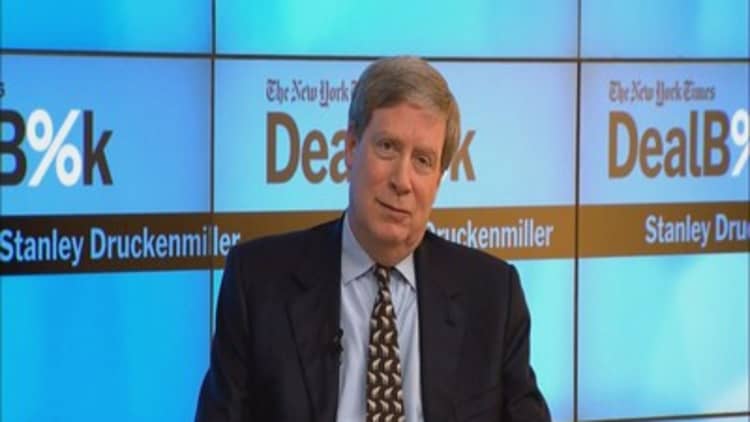
Renowned hedge fund manager Stanley Druckenmiller believes the Federal Reserve has created a type of bubble that won't end well.
A frequent Fed critic, the head of Duquesne Capital said the central bank has created a bubble of short-term investing through its near zero interest rates and quantitative easing.
On the heels of the financial crisis, the Fed cut its target rate to near zero and conducted three rounds of money printing during which it expanded its balance sheet to $4.5 trillion.
Druckenmiller said the first round of QE was necessary to stem the financial crisis, during which unemployment soared eventually to 10 percent and the economy entered its worst slump since the Great Depression.
Read MoreData be damned, Wall Street says all is well
But he thinks the Fed took its cheap-money policies too far.
"All you do when you're doing this is you're pulling demand forward to today," Druckenmiller said Tuesday at the annual DealBook conference. "This is not some permanent boost you get. You're borrowing from the future. I think there's been such a misallocation of resources that this has gone on so long and unnecessarily (and) the chickens will come home to roost."
He also blasted the culture the Fed's policies have nurtured in which companies are devoting trillions to share buybacks even after market prices have surged more than 200 percent since March 2009.
Druckenmiller didn't specify exactly how he thinks it all will end, but believes the Fed policies have not only encouraged risky behavior but also have added to income inequality problems by shifting wealth to asset owners.
Why the market is misreading the Fed decision
"Over six years when you have zero rates and quantitative easing you move investors out the risk curve," he said. "You cause corporations to start acting in bizarre ways."






